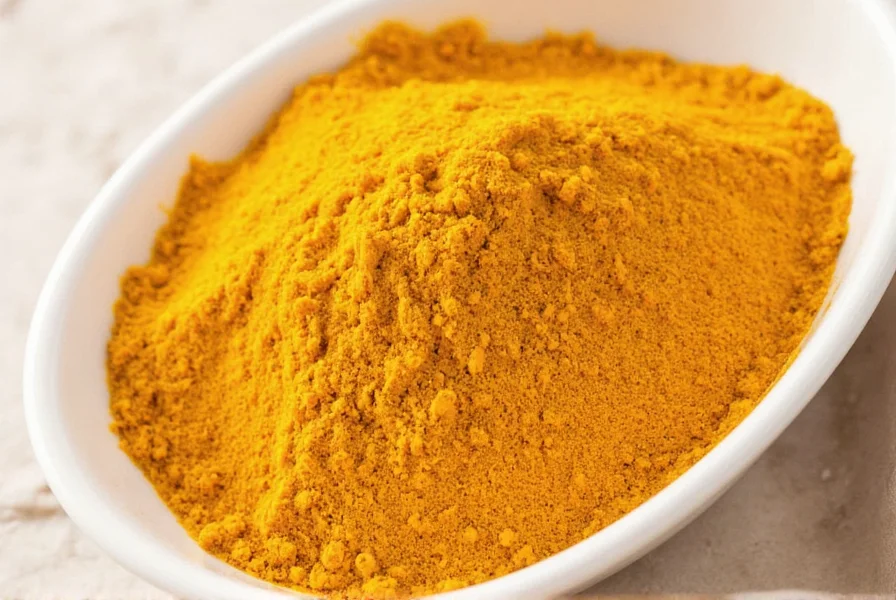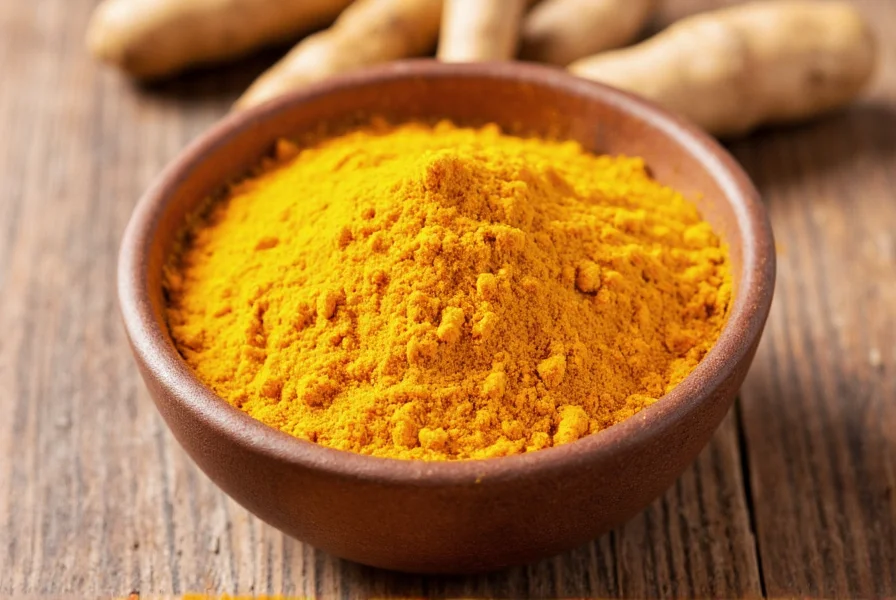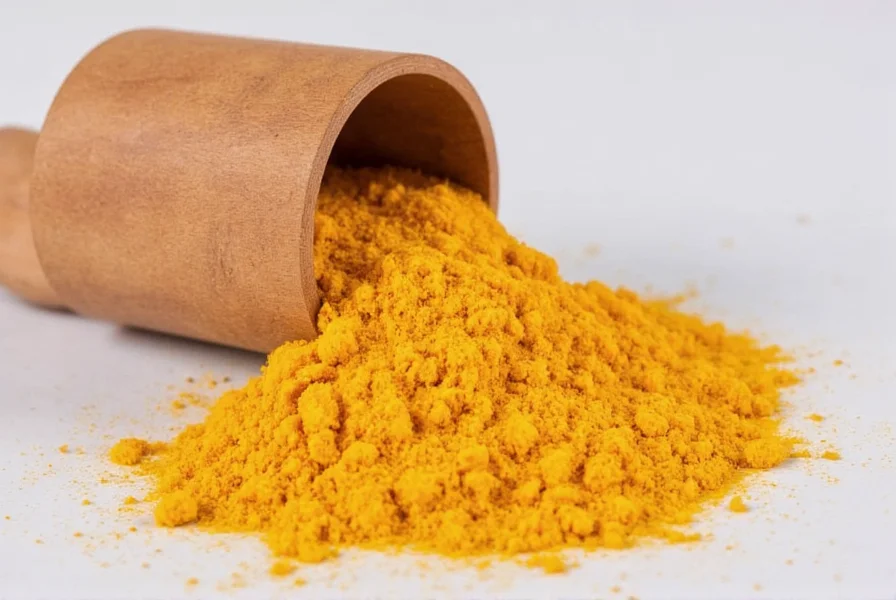Understanding how to properly take turmeric maximizes its potential health benefits while minimizing risks. This vibrant yellow spice contains curcumin, the active compound responsible for most of its therapeutic properties, but curcumin has notoriously poor bioavailability on its own. Research shows that without proper consumption methods, your body absorbs less than 1% of ingested curcumin.
Understanding Turmeric Forms and Their Benefits
Turmeric comes in several forms, each with distinct advantages for different usage scenarios. Knowing these options helps you select the best method for your lifestyle and health goals.
| Form | Curcumin Content | Best For | Daily Usage Tips |
|---|---|---|---|
| Raw turmeric root | 2-5% | Cooking, fresh preparations | Peeled and grated into smoothies or juices |
| Ground turmeric powder | 3-5% | Cooking, golden milk | 1/2-1 tsp with black pepper and healthy fats |
| Standardized extracts | 95% curcuminoids | Therapeutic dosing | Follow label instructions, typically 500mg 1-2x daily |
| Liposomal curcumin | Varies | Maximum absorption | Take on empty stomach as directed |
Optimizing Turmeric Absorption: The Science-Backed Approach
The key to effective turmeric consumption lies in overcoming curcumin's poor bioavailability. Scientific research reveals three critical factors that dramatically improve absorption:
1. Piperine combination - Adding just 20mg of piperine (from black pepper) increases curcumin absorption by 2,000%. This is why traditional Ayurvedic preparations always combine turmeric with black pepper. When preparing golden milk or cooking with turmeric, always include freshly ground black pepper.
2. Fat pairing - Curcumin is fat-soluble, meaning it dissolves in fats but not water. Consuming turmeric with healthy fats like coconut oil, olive oil, or avocado significantly enhances absorption. For supplements, choose formulations that include phospholipids or take them with a meal containing healthy fats.
3. Heat activation - Gentle cooking (below 300°F/150°C) actually increases curcumin's bioavailability. This explains why traditional preparations like golden milk involve simmering turmeric in milk or plant-based alternatives.

Practical Methods for Taking Turmeric Daily
Integrating turmeric into your daily routine requires practical, sustainable approaches. Here are evidence-based methods that work for different lifestyles:
Culinary Integration
The most traditional and enjoyable way to take turmeric involves incorporating it into your cooking. Add 1/2-1 teaspoon of turmeric powder to:
- Curries and stews during the sauté phase
- Rice or grain dishes (add with cooking liquid)
- Roasted vegetables (toss with oil and turmeric before baking)
- Homemade salad dressings
Golden Milk Preparation
This ancient Ayurvedic beverage remains one of the most effective delivery methods. To prepare properly:
- Heat 1 cup of milk (dairy or plant-based) until steaming but not boiling
- Add 1/2 teaspoon turmeric powder, 1/8 teaspoon black pepper, and 1/2 teaspoon coconut oil
- Simmer gently for 5-10 minutes
- Add optional ingredients like cinnamon, ginger, or honey to taste
- Consume in the evening for potential sleep benefits
Supplement Strategies
For therapeutic dosing, supplements provide standardized curcumin content. When selecting and using supplements:
- Choose products with BCM-95, Meriva, or Longvida formulations for superior absorption
- Take 500mg doses twice daily rather than 1,000mg once daily for consistent blood levels
- Always consume with a meal containing healthy fats
- Avoid taking simultaneously with anticoagulant medications

Dosage Guidelines Based on Scientific Research
Determining the right turmeric dosage depends on your specific health goals. Clinical studies provide these evidence-based recommendations:
- General wellness: 500mg of standardized curcumin extract once daily or 1/2 teaspoon turmeric powder in food
- Inflammation management: 500mg of enhanced-absorption curcumin twice daily
- Joint health support: 1,000mg of curcumin with piperine daily, divided into two doses
- Digestive support: 1/4-1/2 teaspoon turmeric powder with meals
Never exceed 8 grams of raw turmeric or 2,000mg of curcumin extract daily without medical supervision. Start with lower doses and gradually increase to assess tolerance.
Safety Considerations and Potential Interactions
While turmeric is generally safe as a culinary spice, higher therapeutic doses require caution. Important safety considerations include:
- Blood thinning effects: Turmeric may enhance the effects of anticoagulant medications like warfarin
- Gallbladder concerns: May worsen gallstones or bile duct obstruction
- Iron absorption: High doses might interfere with iron metabolism
- Pregnancy: Culinary amounts are safe, but therapeutic doses should be avoided
- Surgery: Discontinue high-dose turmeric at least two weeks before scheduled surgery
Consult your healthcare provider before starting turmeric supplementation if you have diabetes, GERD, or are taking medications metabolized by the liver. Most people tolerate culinary amounts well, but some experience mild digestive upset at higher doses.
Timing Your Turmeric Consumption for Maximum Benefit
When you take turmeric affects its effectiveness. Research suggests these timing strategies:
- Morning doses: Take with breakfast for sustained daytime benefits, especially when combined with healthy fats
- Evening consumption: Golden milk before bed may support sleep quality and overnight recovery
- With meals: Always consume turmeric with food to prevent stomach upset and enhance absorption
- Distribution: Split larger doses throughout the day rather than taking all at once
Avoid taking turmeric on an empty stomach, as this increases the risk of digestive discomfort. For inflammation management, consistent daily use over 4-8 weeks yields better results than sporadic consumption.
Frequently Asked Questions
What's the best time of day to take turmeric supplements?
The optimal time depends on your goals. For general wellness, take turmeric supplements with your largest meal of the day that contains healthy fats. For sleep support, prepare golden milk 1-2 hours before bedtime. Many people benefit from splitting doses—taking half with breakfast and half with dinner—to maintain consistent blood levels throughout the day.
How much black pepper should I take with turmeric for maximum absorption?
Research shows that just 1/20th of a teaspoon (approximately 20mg) of black pepper provides sufficient piperine to increase curcumin absorption by up to 2,000%. This equals about 1/4 to 1/2 teaspoon of freshly ground black pepper when preparing golden milk or cooking with turmeric. More than this amount doesn't significantly increase absorption and may cause digestive discomfort for some people.
Can I take turmeric on an empty stomach?
It's generally not recommended to take turmeric on an empty stomach, especially in supplement form. Curcumin may cause stomach upset, nausea, or acid reflux when consumed without food. For optimal absorption and minimal side effects, always take turmeric with a meal containing healthy fats. If using as a culinary spice, incorporate it directly into cooked dishes rather than consuming it alone.
How long does it take to notice benefits from taking turmeric regularly?
Most people begin noticing subtle benefits from consistent turmeric use within 4-8 weeks. Those using enhanced-absorption curcumin supplements for inflammation may experience improvements in joint comfort within 2-4 weeks. For digestive benefits, some notice improvements within days. Maximum benefits typically require 8-12 weeks of consistent daily use at appropriate doses. Individual results vary based on health status, dosage, and formulation quality.
What's the difference between turmeric and curcumin when taking supplements?
Turmeric is the whole spice containing about 3% curcumin by weight, while curcumin is the specific active compound responsible for most health benefits. Most therapeutic supplements use concentrated curcumin extracts (95% curcuminoids) rather than whole turmeric powder. When taking supplements, look for standardized curcumin content (typically 500mg) rather than total turmeric amount. For culinary use, whole turmeric powder provides additional beneficial compounds beyond just curcumin.











 浙公网安备
33010002000092号
浙公网安备
33010002000092号 浙B2-20120091-4
浙B2-20120091-4